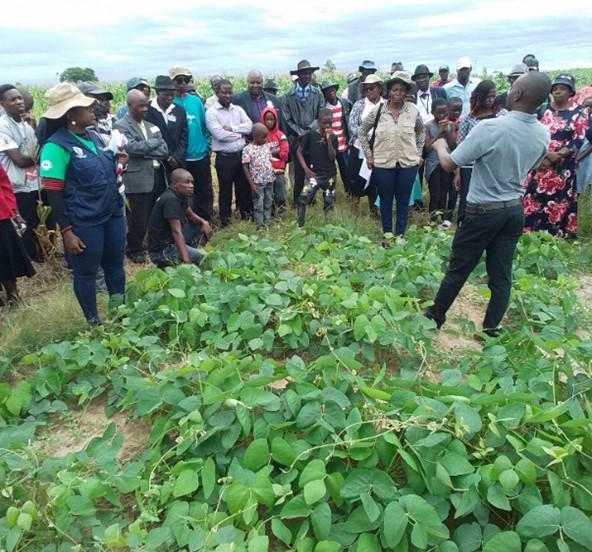SACP supports smallholder farmers to grow own fodder
The Smallholder Agriculture Cluster Project supported the cultivation of velvet bean in Zvimba District as the project mainstreams climate smart agriculture into its initiatives. The district is one of the 18 under SACP, where the project is promoting selected value chains, including livestock as it seeks to build resilience among smallholder farmers, create market linkages that will result in improved incomes.
The field day was hosted by the 30 member Chomutamba Agriculture Producer Groups (APG). For the fodder. The farmers managed to harvest 0.160 tonnes per hectare. This was in contrast with other farmers in the area whose crop was a complete write off due to the El Nino induced drought. For maize, the farmers recorded 2.403tonnes per hectare. The farmers also grew cowpeas which is drought resistant and harvested 0.801 tonnes per hectare. Due to the devastating El Nino induced drought, other farmers in the area did not harvest anything.
The Mashonaland West Provincial Training Officer in the Ministry of Lands, Agriculture, Fisheries, Water and Rural Development, Mr Lyodd Bongani Makwena urged farmers to embrace practical Climate Smart Agriculture (CSA) Technologies SACP brought by to the farmers. These included Conservation Agriculture (Pfumvudza), use of hydrogel and diversified cropping. He noted that velvet bean is a good source of protein to livestock and encouraged farmers to have their own household plots where they grow fodder in order to save livestock during dry seasons.
The host APG’s chairperson. Mr James Muronya expressed gratitude to SACP for the initiative on CSA demo plots, noting that they had gained practical knowledge on the use of hydrogel and growing of velvet beans which they had underrated in the previous seasons. He added that farmers were ready to embrace the technology, after physically observing and learning from the Velvet bean demo plot.
Livestock which includes goats, cattle, pigs and poultry is one of the value chains that are supported by the project. Other value chains include horticulture, citrus, dairy and traditional grains.

